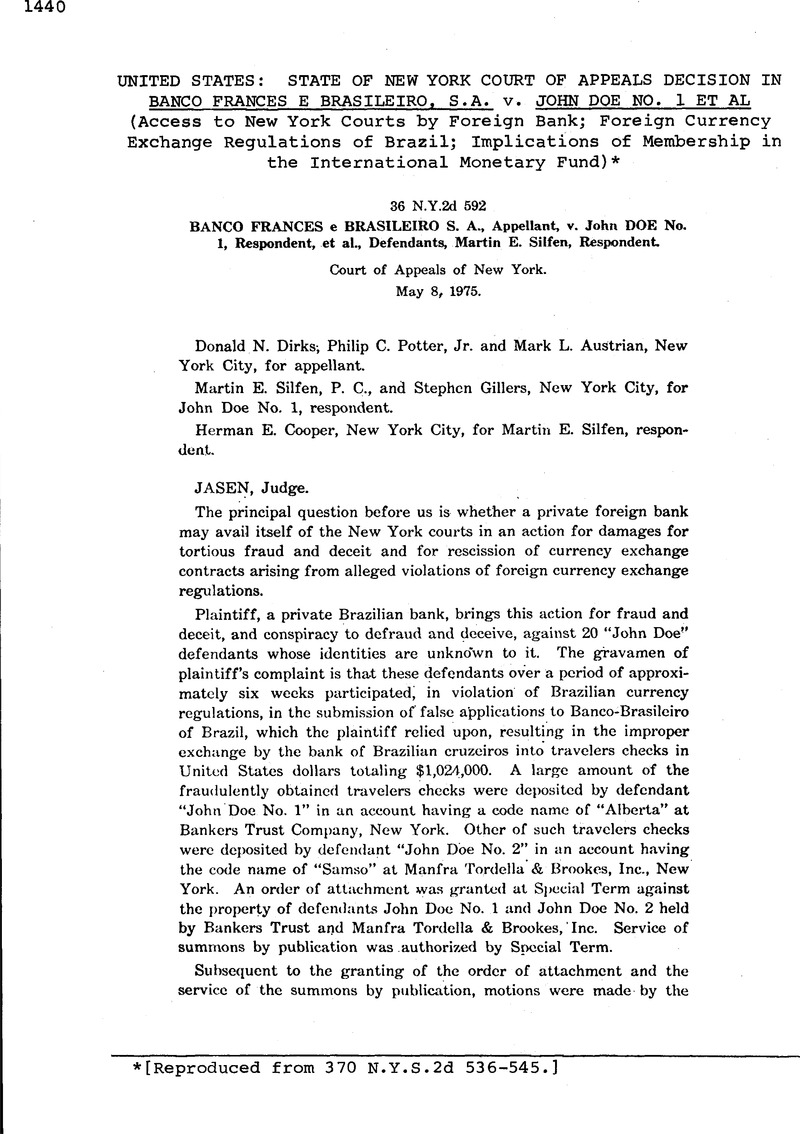No CrossRef data available.
Published online by Cambridge University Press: 04 April 2017

[Reproduced from 370 N.Y .S .2d 536-545.]
page 1442 note * There it is provided in relevant part; “Exchange contracts which involve the currency of any member and which are contrary to the exchange control regulations of that member maintained or imposed consistently with this Agreement shall be unenforceable in the territories of any member. In addition, members may, by mutual accord, cooperate in measures for the purpose of making the exchange control regulations of either member more effective”
page 1445 note * Indeed there might be a thorny issue as to whether enforcement is direct or indirect—i. e., whether a particular plaintiff should indeed be considered to be an “instrumentality” of a foreign government. Thus, our courts would be required to undertake an assessment of the practical impact and significance of the economic as well as legal sanctions which the particular foreign government might bring to bear. The question would be whether the private corporation or other entity enjoyed such protected freedom of independent action that it should be determined, de facto as well as de jure, not to be an instrumentality of the foreign government. Our courts would normally be ill equipped to undertake such an inquiry, and to embark on it would be to reach for determination beyond our competency of satisfactory resolution.